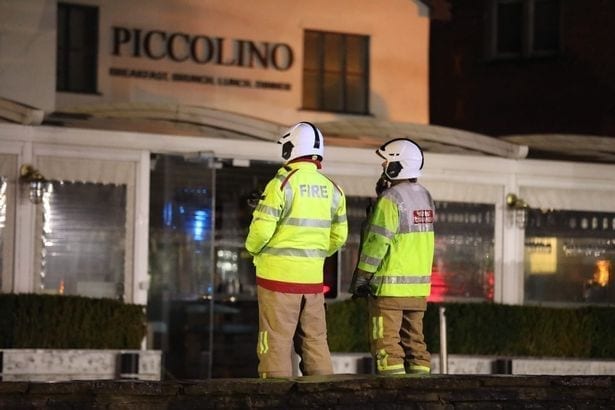The commercial and catering service hospitality sector is under phenomenal strain at the moment. Given that it’s going through such an exceptionally tough period, the prospect of adding to the list of issues to deal with is unlikely to be met with a great deal of enthusiasm. The need to make sure fire risks are being managed, however, cannot be overlooked. And in fact, by taking preventative steps in a timely fashion, they could actually be avoiding significant problems longer term. Because, despite everything else going on in the world, fires continue to break out and cause a great deal of disruption and distress.
There have been several fires over the course of 2020
At the start of the year Italian restaurant Piccolino in Alderley Edge near Manchester suffered a fire which started in the roof space. The restaurant had to be evacuated and a neighbouring restaurant had to close too. Even when life was more ‘normal’, it could be challenging to get a restaurant quickly operational again after a fire. But since the start of the pandemic, it’s been especially difficult for restaurants already struggling to survive to then find themselves facing disruption or even closure due to fire. This restaurant in Cardiff’s Penarth Marina had only been open for two weeks before a fire broke out. While it has since reopened, the fire certainly caused significant disruption at a time when the restaurant could ill afford to lose business. And this fire in a restaurant in Cornwall caused by an oil explosion from a deep fat fryer resulted in injuries to three people with one suffering serious burns.
Minimising fire risks in commercial kitchens
Commercial kitchens present some obvious hazards; the use of hot cooking appliances and highly flammable ingredients like oil make it an obvious high risk area. But what are some of the main steps that should be taken for managing the risks, particularly when some of the hazards might not be so immediately apparant?
- Don’t let grease deposits build up
There are numerous places where grease deposits can build up in commercial kitchen environments. As well as the more visible locations, such as surfaces and oven hoods, they can start to clog up ductwork too. This can create a serious problem if the ducting is not professionally cleaned on a regular basis; these types of deposits can help flames spread rapidly throughout a building, as illustrated by the fire that broke out in August at this restaurant in Northampton.
- Check electrics and electrical equipment
Electrical fires can ignite as a result of unsafe sockets, switches and wiring. It’s important to ensure that all kitchen electrical fittings are checked, both through ongoing visual inspection but also periodically by a qualified electrician. Remember that appliances must be well maintained too – this Salford restaurant suffered significant fire damage when one of its dishwashers developed a fault and ignited.
- Review your fire extinguisher provision
It’s important to have the correct types of fire extinguishers in place for the risks in your kitchen environment, as identified through the risk assessment process. One of the most commonly used are wet chemical fire extinguishers, designed for use on cooking oil and fat. Make sure all fire extinguishers are situated correctly, close to where they could need to be used, and check whether they are due servicing any time soon.
- Maintain the fire suppression system
Kitchen fire suppression systems detect if a fire has broken out and automatically respond by discharging a liquid chemical. That reacts with the grease and creates a thick foam to quickly extinguish flames and prevent re-ignition. Even if you already have a system in place, as with other forms of fire prevention equipment, it’s important to make sure it is serviced so it will operate correctly if needed.
- Make sure you could rapidly evacuate if necessary
If there was a fire, it’s crucial that people in the building can be evacuated quickly. Make sure that all exits are free from obstructions, check that the correct signs are present and clearly show people their closest exit, and ensure all emergency lighting is working properly.
It’s important that staff know what to do in the event of a fire. Make sure that they understand what’s required of them as far as fire safety is concerned, including the role they would need to play helping people out of the area quickly and calmly if there was a fire.
Get in touch with us if you need help managing your fire risks
While commercial and catering service businesses have found themselves facing unprecedented challenges, the fact that fire safety needs to be managed has not changed. Don’t add to your problems by having an increased risk of fire breaking out in your hospitality business. Complete a thorough risk assessment then keep up with the actions to reduce the risks. If you need some professional cost-effective advice on how to protect your business from fire, please do contact us.
